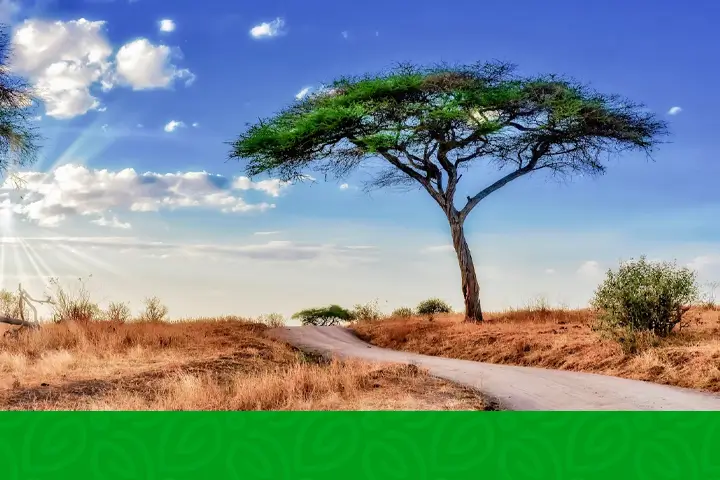
Africa, often celebrated for its breathtaking landscapes and diverse ecosystems, is emerging as a pivotal player on the global stage, not just in terms of biodiversity but also as a powerhouse of untapped potential. The African Wildlife Foundation (AWF) recognizes this untapped resource and asserts that nature can be Africa’s bargaining chip in international affairs. In this article, we delve into how Africa’s rich natural heritage can shape a sustainable future while influencing global agendas.
Africa: A Treasure Trove of Ecosystems
Africa’s significance on the world map goes far beyond its iconic wildlife and scenic beauty. Fred Kwame, the Vice President of Global Leadership at AWF, highlights that Africa houses more than a third of the world’s ecosystems. This vast natural wealth presents Africa with a unique investment opportunity that aligns with green development.
A Crucial Role in Global Conservation and Climate Action: Kwame emphasizes that global initiatives focusing on biodiversity conservation and climate change cannot succeed without Africa. The interconnection between the conservation of nature and meeting the needs of its people is a key negotiating position for Africa. It’s a recognition that Africa’s natural assets are vital to addressing the global challenges of our time.
The Kunming-Montreal Global Biodiversity Framework
Kwame discusses the significance of the Kunming-Montreal Global Biodiversity Framework (GBF), a pact signed by 196 nations to combat biodiversity loss by 2030 and protect 30% of land and sea areas. He acknowledges that while the GBF presents mixed outcomes for Africa, it provides an opportunity for substantial progress toward the 2030 targets.
Conservation and Sustainable Use
One notable aspect of the GBF is the commitment to conserving nature through global spatial protection targets and the restoration of degraded lands. Kwame underlines the importance of balancing conservation with sustainable resource use, a stance that aligns with Africa’s development goals and the well-being of its people.
The Economic Value of Africa’s Natural Assets
Though comprehensive studies on the economic value of Africa’s natural assets are lacking, Kwame reveals that in 2018, Africa’s measured natural capital was estimated at a staggering US$6.2 trillion. This wealth includes mineral and fossil fuel resources worth US$290 billion and US$1.05 trillion, respectively. Such figures underscore the enormous potential Africa holds in its natural resources.
Renewable Energy and Economic Growth
Kwame points out that Africa’s renewable energy capacity is on the rise, with expectations to increase from 27.4 GW in 2023 to over 280 GW in 2035. This expansion in the energy sector, coupled with Africa’s heavy reliance on natural resources (constituting 60% of GDP), positions the continent to leverage its natural wealth for sustainable development.
Respecting Indigenous Rights
Lastly, Kwame emphasizes the need to recognize, respect, and safeguard the rights of indigenous peoples and local communities, especially their rights to land and participation in decision-making processes. This recognition is a significant step forward within the GBF, acknowledging the role of these communities in conservation and sustainable resource management.
Africa’s natural wealth is not just a regional asset; it’s a global treasure. As Africa asserts itself as a key player in global conservation and climate action, it exemplifies how nature can be a potent bargaining chip. With its abundant ecosystems, economic potential, and commitment to sustainability, Africa is poised to shape a brighter, greener future for itself and the world.
Stay updated with the latest farming tips and agriculture industry news from Africa by subscribing to our newsletter. Don’t miss out on valuable insights and updates. Follow us on Twitter, LinkedIn, and Facebook to join our farming community and stay connected with us.



















